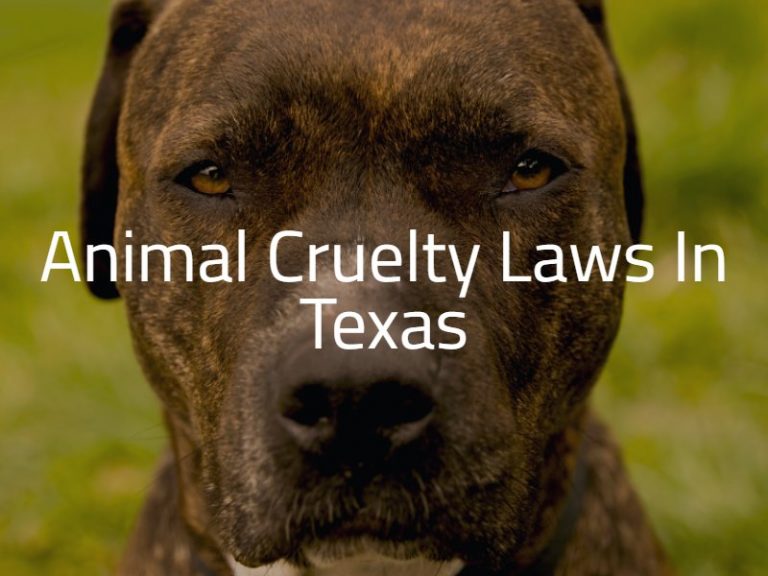Animal cruelty—an abhorrent practice that plagues societies worldwide. The shocking reality is that in some states, the legal consequences for such an egregious act vary significantly. In Texas, Georgia, and Florida, the statutes regarding animal cruelty are more than legalistic jargon; they epitomize a societal commitment to animal welfare. This article seeks to elucidate the legal consequences of animal cruelty in these three states, while also highlighting the broader cultural implications of cruelty and the urgency for reform.
Understanding animal cruelty requires us to first define the term. Often, animal cruelty encompasses a spectrum of actions, ranging from neglect and abandonment to more violent actions such as physical abuse or torture. The laws are not monolithic; rather, they differ vastly depending on the jurisdiction. In examining the legal landscape of Texas, Georgia, and Florida, a clearer picture emerges of how individuals caught committing such acts are dealt with in the eyes of the law.
In Texas, animal cruelty is regarded as a serious offense, categorized under the Texas Penal Code. The law defines cruelty towards animals as not only acts of overt violence or cruelty but also includes negligent actions that result in harm or suffering to an animal. Under Texas law, an individual can be charged with a Class A misdemeanor for basic cruelty. However, if the individual intentionally or knowingly causes serious bodily injury or death to an animal, they may be charged with a felony, which carries a more severe penalty, including a maximum of two years in jail and significant fines. Those penalties increase if more than one animal is harmed, demonstrating a legislative recognition of the emotional and societal impacts of such cruelty.
In stark contrast, the state of Georgia possesses its own set of laws aimed at curtailing animal cruelty. Georgia’s Animal Cruelty Act includes provisions that criminalize both neglect and abuse. Here, cruelty to animals is classified predominantly as a felony, with punishments that can include imprisonment for up to five years for each violation. The Georgia code is comprehensive; it specifically addresses actions such as failing to provide adequate food, water, or shelter, reaffirming the notion that neglect can be as harmful as physical abuse. Importantly, Georgia has established a “wobbler” statute, allowing certain misdemeanor offenses to escalate to felonies under aggravated circumstances—an essential aspect of the law that adds another layer of accountability.
Meanwhile, Florida has its unique approach to combatting animal cruelty. Under Florida Statutes, the state recognizes both intentional and reckless acts of cruelty as severe offenses. An individual who commits an act of animal cruelty may face felony charges, with penalties including imprisonment of up to five years and heavy fines. Florida’s lawmakers have also taken steps to ensure that the law encompasses not just physical abuse but also psychological harm to animals, highlighting a progressive understanding of animal welfare. The state has made strides in advocating for the humane treatment of animals through educational programs aimed at preventing cruelty, thereby fostering a societal shift in mindset towards animals.
The legal ramifications of animal cruelty in Texas, Georgia, and Florida not only expose individuals to serious criminal charges but also reflect larger societal attitudes toward animal rights. Each of these states has adapted its laws over time, informed by a growing consciousness regarding the treatment of animals. The evolution of these laws indicates a promising trend; society is beginning to recognize that animals are sentient beings deserving of protection. This shift in perspective is crucial not merely for legal interpretations but also for increasing public awareness about animal welfare.
Amidst these developments lies a pressing question: how can individuals contribute to the eradication of animal cruelty in their communities? The answer often lies within education and advocacy. Engaging local communities through campaigns, educational outreach, and responsible pet ownership practices can galvanize efforts to combat animal cruelty. Increasing visibility on social media platforms can amplify voices fighting against animal abuse, creating an interconnected network of advocates willing to challenge outdated norms and practices.
Furthermore, collaboration among lawmakers, animal rights activists, and ordinary citizens is vital. Legislative reforms need seismic shifts to reflect contemporary views on animal rights. Advocacy groups must push for stiffer penalties, increased funding for animal shelters, and enhanced rescue operations, all aimed at providing a safer environment for vulnerable creatures.
As we navigate these complex legal waters, it is essential to remain vigilant. The battle against animal cruelty does not end with the establishment of laws; it requires ongoing commitment and vigilance by society as a whole. By fostering a compassionate view towards animals, communities can dissuade potential offenders and create a culture of respect for all living beings.
In summary, while Texas, Georgia, and Florida each offer distinct legal frameworks regarding animal cruelty, they share a common goal: to protect and uphold the rights of animals. As these laws continue to develop, it is imperative for individuals to remain engaged in the fight against cruelty—not merely as spectators, but as active participants in the reshaping of societal attitudes towards animals. Collectively, we can forge a future where cruelty to animals is not just legally addressed but eliminated entirely.








